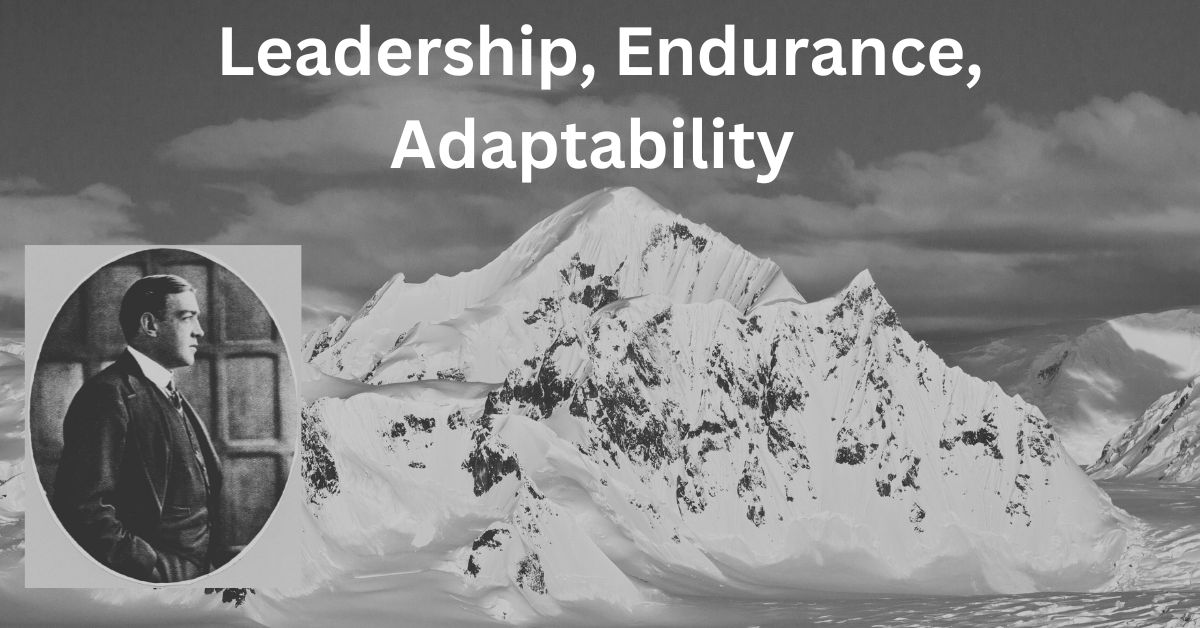Leadership in Challenging Times
~
Ernest Shackleton was a prominent British explorer best known for his expeditions to the Antarctic in the early 20th century. Many in the business world have studied and admired Shackleton’s leadership during times of extreme adversity.
Here are some lessons modern businesses can draw from Shackleton’s exploits:
Adaptability:
Be ready to change plans when external conditions shift dramatically.
Embrace change as an opportunity rather than an obstacle.
Team Morale:
Maintain team spirit and morale, even under the most stressful conditions.
Recognise and address the emotional needs of your team.
Decisive Leadership:
Make tough decisions promptly when the situation demands it.
Lead from the front, setting an example for others to follow.
Innovation and Problem-Solving:
Be creative in overcoming challenges, using the resources in unconventional ways.
Encourage a culture of problem-solving within your team.
Clear Communication:
Communicate goals, risks, and plans clearly and regularly to your team.
Ensure everyone understands their role and the importance of their contributions.
Persistence and Resilience:
Stay committed to your goals, even when facing setbacks.
Cultivate resilience, allowing your business to weather storms and recover from difficulties.
Empathy:
Understand and relate to your team’s perspectives and challenges.
Lead with empathy, building trust and loyalty.
Risk Management:
Prepare for potential risks and have contingency plans in place.
Assess risks accurately and do not shy away from taking calculated risks when necessary.
Focus on the Welfare of Your Team:
Value your employees’ well-being as a priority, knowing that a supported team is more motivated and productive.
Inspiring Leadership:
Be the leader who inspires action and confidence through vision and passion.
Foster a sense of shared purpose and celebrate successes together.
Applying these principles can help business leaders manage crises, lead through change, and inspire their teams to achieve their objectives. Shackleton’s story is a master class in leadership, emphasising the importance of courage, determination, and the human element in achieving success.
Key points about Shackleton’s Life:
- Early Life: Shackleton was born on February 15, 1874, in County Kildare, Ireland.
- Maritime Career: He joined the merchant navy when he was 16 and quickly rose through the ranks.
- Antarctic Expeditions: Shackleton was a crucial figure in the period known as the Heroic Age of Antarctic Exploration.
- Discovery Expedition (1901-1904): His first experience with polar conditions was as a junior officer on Captain Scott’s Discovery expedition.
- Nimrod Expedition (1907-1909): Shackleton led this expedition, coming within 97 miles of the South Pole, the farthest south anyone had reached at that time.
Endurance Expedition (1914-1917): His most famous expedition. After the ship Endurance was trapped and then crushed by pack ice, Shackleton and his crew survived on ice floes for months before making a daring small boat journey to Elephant Island and South Georgia.
Leadership: He is celebrated for his leadership skills and for keeping his crew alive against the odds. His mantra was ‘Fortitudine Vincimus’ (By Endurance We Conquer).
Later Life and Death: Shackleton organised one final Antarctic trip called the Quest expedition but died of a heart attack near the beginning of the journey, on January 5, 1922, in South Georgia.
Legacy: Although he never completed his goal of crossing Antarctica, his story of survival and leadership in dire circumstances has inspired generations.
Many books and films have been written about Shackleton’s life and expeditions, contributing to his enduring legacy as an iconic exploration figure.



